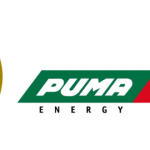The Democratic Republic of Congo’s (DRC) Mining Registry (CAMI) has assured stakeholders that the entry of American investors into the country’s mining sector will not come at the expense of existing partners, particularly Chinese companies that already dominate much of the industry.
At a press conference on Thursday, August 7, 2025, CAMI Board Chairman Crispin Mbindule Mitono dismissed rumors that the Congolese government intended to reserve its mineral wealth exclusively for US firms.
Equal Rules for All Operators
“The contract we signed does not mean we are offering mining areas to the Americans for free,” Mbindule explained. “Their companies are following the same procedures as everyone else: they comply with the mining code, pay the required filing fees, and are preparing to meet their surface-rights obligations.”
He emphasized that American companies seeking titles through CAMI are treated like any other operators. Their arrival, he stressed, does not threaten the position of Chinese or other foreign investors already active in the DRC.
Addressing Contract Concerns
Mbindule acknowledged that the DRC still faces challenges with certain “unfair contracts,” but clarified that these disputes do not involve the latest American entrants. Instead, the government is working to ensure greater transparency and accountability in resource management.
Strengthening Mining Sovereignty
Highlighting CAMI’s recent achievements, Mbindule noted that between 2024 and 2025, the registry enabled the state to recover control of 6,733 mining squares across 167 titles. These efforts, he said, are part of a broader push to reinforce mining sovereignty and ensure that resource development benefits the Congolese people.
The Bottom Line
While American investment is expected to bring new opportunities to the DRC’s mining sector, authorities have been clear: it will not replace or displace existing partnerships. Instead, the government aims to balance relationships with multiple international players while tightening oversight to secure better long-term outcomes.















